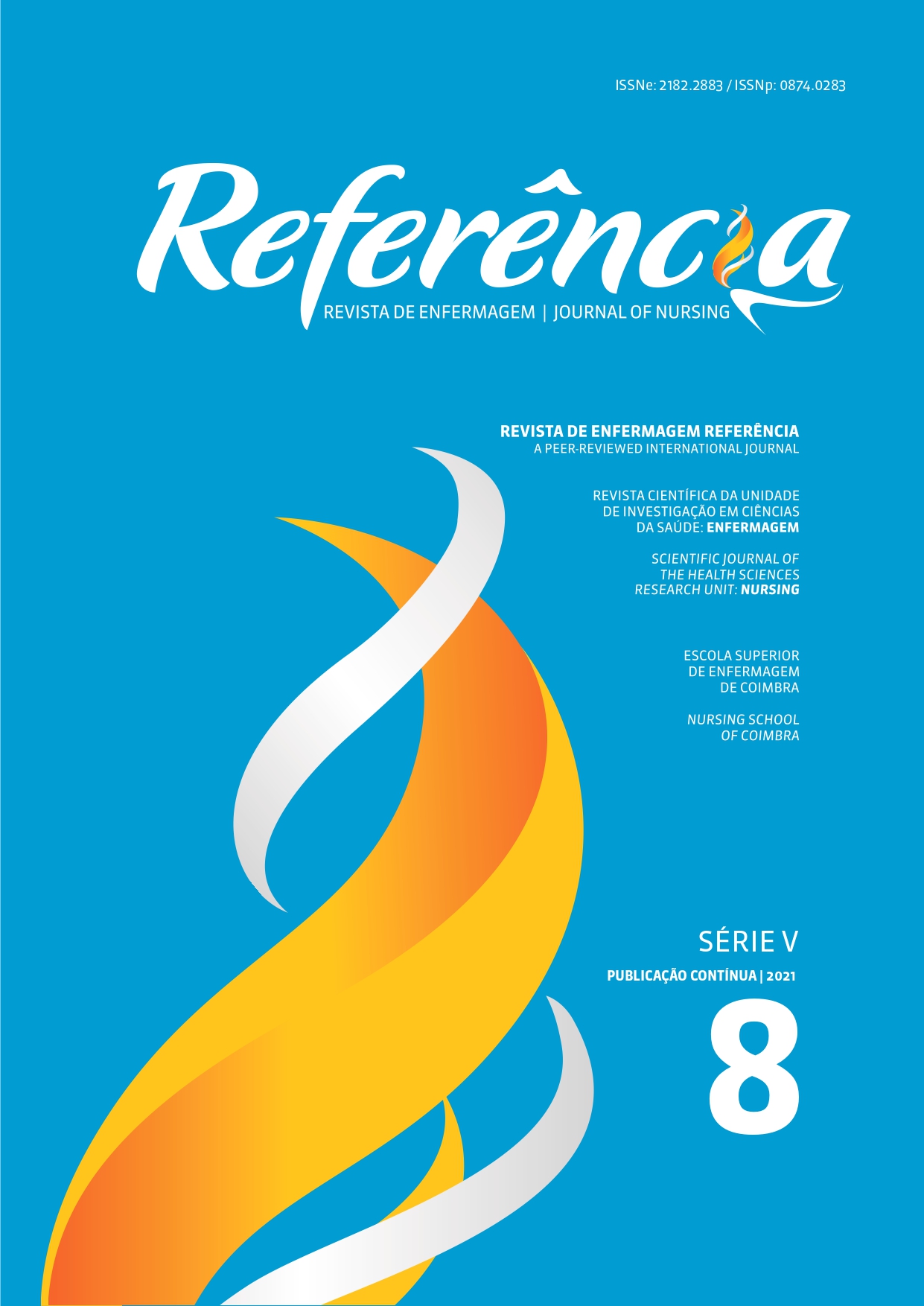Knowledge about basic life support in higher education health students
DOI:
https://doi.org/10.12707/RV20182Keywords:
health students, first aid, cardiopulmonary resuscitation, knowledgeAbstract
Background: Cardiac arrest (CA) is a serious problem that requires the immediate intervention of third parties using basic life support (BLS).
Objectives: To assess higher education health students’ knowledge about BLS and analyze the associations between level of knowledge and sociodemographic, academic, and socio-educational variables.
Methodology: Quantitative correlational cross-sectional study in a sample of higher education students.
Results: The sample consisted of 683 students, with a mean age of 21 years, mostly women. The mean knowledge score was 11.79 points, on a scale of 0 to 20. There was a statistically significant association between the level of knowledge and the program, the year of study, having attended a BLS course/training, and having attended course units with BLS content.
Conclusion: The mean scores reflect a sufficient level of knowledge, with the following groups obtaining higher scores: 4th-year students, nursing program, and previous BLS training.
Downloads
References
Al-Mohaissen, M. A. (2017). Knowledge and attitudes towards basic life support among health students at a Saudi women’s university. Sultan Qaboos University Medical Journal, 17(1), e59–e65. https://doi.org/10.18295/squmj.2016.17.01.011
Alanazi, A., Alsalmah, M., Alsomali, O., Almurshdi, A., Alabdali, A., Al-Sulami, M., Al-Nemer, A., Al-Qusairy, A., Aloraibi, S., & Iqbal, Z. (2014). Poor Basic Life Support awareness among medical and college of applied medical sciences students necessitates the need for improvement in standards of BLS training and assessment for future health care providers. Middle-East Journal of Scientific Research, 21(5), 848–854. https://doi.org/10.5829/idosi.mejsr.2014.21.05.82335
Alotaibi, O., Alamri, F., Almufleh, L., & Alsougi, W. (2016). Basic Life Support: Knowledge and attitude among dental students and staff in the College of Dentistry, King Saud University. Saudi Journal for Dental Research, 7(1), 51–56. https://doi.org/10.1016/j.sjdr.2015.06.001
Awadalla, N. J., Al Humayed, R. S., & Mahfouz, A. A. (2020). Experience of Basic Life Support among king khalid university health profession students, southwestern Saudi Arabia. International Journal of Environmental Research and Public Health, 17(13), 1–7. https://doi.org/10.3390/ijerph17134822
Bossaert, L., & Chamberlain, D. (2013). The European Resuscitation Council: Its history and development. Resuscitation, 84(10), 1291–1294. https://doi.org/10.1016/j.resuscitation.2013.07.025
Dixe, M. A., & Gomes, J. C. (2015). Knowledge of the Portuguese population on Basic Life Support and availability to attend training. Revista da Escola de Enfermagem da USP, 49(4), 636–644. https://doi.org/10.1590/S0080-623420150000400015
Durak, H., Çertug, A., Çalişkan, A., & Dalen, J. (2006). Basic Life Support skills training in a first year medical curriculum: Six years’ experience with two cognitive–constructivist designs. Medical Teacher, 28(2), e49–e58. https://doi.org/10.1080/01421590600617657
García-Suárez, M., Méndez-Martínez, C., Martínez-Isasi, S., Gómez-Salgado, J., & Fernández-García, D. (2019). Basic Life Support training methods for health science students: A systematic review. International Journal of Environmental Research and Public Health, 16(5), 768. https://doi.org/10.3390/ijerph16050768
Grupo de Trabalho. (2018). Requalificação do programa nacional de desfibrilhação automática externa (GT – RDAE): Despacho nº 2715/2018: Relatório final. https://www.inem.pt/wp-content/uploads/2018/07/Documento-Final-GT-RDAE-20_7_2018.pdf
Khader, K. A., Al-ghamdi, A. N., Youssef, H. A., Ahmad, A. I., Ayasreh, I. R., Al-mawajdeh, N. A., & Mohammed, A. A. (2016). Awareness and knowledge of health-college students of cardiopulmonary resuscitation at Taif University, Saudi Arabia. International Journal of Multidisciplinary and Current Research, 4, 348–351. http://ijmcr.com/wp-content/uploads/2016/04/Paper25348-351.pdf
Kose, S., Akin, S., Mendi, O., & Goktas, S. (2020). The effectiveness of basic life support training on nursing students’ knowledge and Basic Life Support practices: A non-randomized quasi-experimental design. African Health Sciences, 20(2), 966–976. https://doi.org/10.4314/ahs.v20i2.53
López, M. P., Martínez-Isasi, S., Barcala-Furelos, R., Fernández-Méndez, F., Santamariña, D. V, Sánchez-Santos, L., & Rodríguez-Nuñez, A. (2018). Un primer paso en la enseñanza del Soporte Vital Básico en las escuelas: La formación de los profesores. Anales de pediatría,89(5), 265-271. https://doi.org/10.1016/j.anpedi.2017.11.002
Mejia, C. R., García-Saavedra, M., Benites-Flores, I., Ordinola-Calle, D., Failoc-Rojas, V. E., Valladares-Garrido, D.,Talledo-Ulfe, L., Valladares-Garrido, M., Bendezú-Quispe, G., Fasanando-Vela, R., Vásquez-García, G., Chaucayanqui-Gil, D. P., Herrera-Gonzales, D., Paredes-S, L., Arévalo-Oliva, C. E., Bravo-Bravo, A. A., Alvarado-Roque, A., Alvarado-Córdova, R. E., Jiménez-Núñez, D., Escalante-Kanashiro, R., & Mezones-Holguín, E. (2016). Factors associated with knowledge of Basic Life Support in medical students from nine Peruvian universities. Revista Mexicana de Cardiología, 27(2), 87-94. http://www.scielo.org.mx/scielo.php?script=sci_arttext&pid=S0188-21982016000200087&lng=es&tlng=en
Nolan, J. P., Soar, J., Zideman, D. A., Biarent, D., Bossaert, L. L., Deakin, C., Koster, R. W., Wyllie, J., & Böttiger, B. (2010). European Resuscitation Council Guidelines for Resuscitation 2010 section 1: Executive summary. Resuscitation, 81(10), 1219–1276. https://doi.org/10.1016/j.resuscitation.2010.08.021
Perkins, G. D., Handley, A. J., Koster, R. W., Castrén, M., Smyth, M. A., Olasveengen, T., Monsieurs, K. G., Raffay, V., Gräsner, J.-T., Wenzel, V., Ristagno, G., & Soar, J. (2015). European Resuscitation Council Guidelines for Resuscitation 2015: Section 2: Adult Basic Life Support and Automated External Defibrillation. Resuscitation, 95, 81–99. https://doi.org/10.1016/j.resuscitation.2015.07.015
Sá-Couto, C., & Nicolau, A. (2019). General public’s knowledge regarding Basic Life Support: A pilot study with a Portuguese sample. Acta Médica Portuguesa, 32(2), 111–118. https://doi.org/10.20344/amp.10971
Saquib, S. A., Al-Harthi, H. M., Khoshhal, A. A., Shaher, A. A., Al-Shammari, A. B., Khan, A., Al-Qahtani, T. A., & Khalid, I. (2019). Knowledge and attitude about Basic Life Support and emergency medical services amongst healthcare interns in university hospitals: A cross-sectional study. Emergency Medicine International, 2019. https://doi.org/10.1155/2019/9342892
Vural, M., Koşar, M. F., Kerimoğlu, O., Kızkapan, F., Kahyaoğlu, S., Tuğrul, S., & İşleyen, H. B. (2017). Cardiopulmonary resuscitation knowledge among nursing students: A questionnaire study. Anatolian Journal of Cardiology, 17(2), 140–145. https://doi.org/10.14744/AnatolJCardiol.2016.7156






















